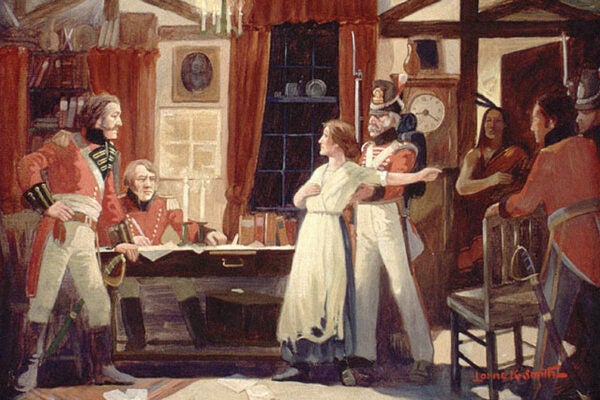The United States presidential election is a year and a half away, but pundits already have a good idea of the handful of candidates to take seriously. That’s largely because of the money they’ve been able to raise. Throughout American history, money and politics have gone together, as a short history by Gil Tory in The Wilson Quarterly in 1997 shows.
Long before the advent of massive spending on political TV commercials, Troy writes, one of the big expenses for would-be politicians was rum punch. George Washington spent a portion of his relatively modest campaign chest on liquoring up voters and handing out cookies and ginger cakes.
In his 1777 run for a seat at the Virginia House of Delegates, future president James Madison revolted against “the corrupting influence of spirituous liquors and other treats… inconsistent with the purity of moral and republican principles.” Voters responded by denying him the office.
By the time Andrew Jackson became president in 1829, almost all white men could vote, and reaching the broader populace required more spending than it once took to convince an elite sliver of society. Jackson built a system of patronage, raising contributions from officeholders to keep the political machine running smoothly. At the same time, he fought moneyed interests, stopping the rechartering of the Second Bank of the United States, even as the bank spent big money to bring other politicians to its side. In response to the bank’s campaign, Jackson asked—in language that sounds remarkably familiar today—”whether the people of the United States are to govern… or whether the power and money of a great corporation are to be secretly exerted to influence their judgment and control their decisions?”
During the Civil War, Abraham Lincoln built the fledgling Republican Party into a powerhouse, offering patronage jobs and military contracts for Northern businesses in exchange for contributions. A decade or two later, in the Gilded Age, businesses started to see campaign contributions to both Republicans and Democrats as a standard cost of doing business.
As the twentieth century approached, Populists and rebel Republicans—known disparagingly as mugwumps—spoke out against the corrupting influence of money on politics. After James Garfield’s 1880 election, one reformer complained that the Republicans “bought Indiana as you would buy so much beef.” In 1896, corporations including Standard Oil poured money helping Republican William McKinley defeat Populist Democrat William Jennings Bryan.
In the early 1900s, progressives and muckraking journalists helped pass laws banning corporate campaign contributions and requiring disclosure of campaign funds. The laws weren’t particularly effective. As the century went on, spending rose dramatically, driven partly by the mass media’s growing power to influence potential voters. Meanwhile, new reforms led to new work-arounds like political action committees.
Since Troy’s paper was published, we’ve seen a few more chapters unfold in the story, notably the McCain-Feingold reform law and the Citizens United Supreme Court decision. And if history is any guide, debate on the subject isn’t going away any time soon.







